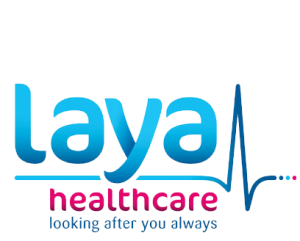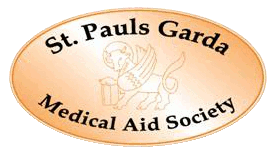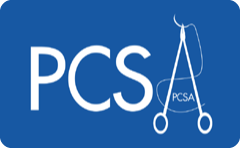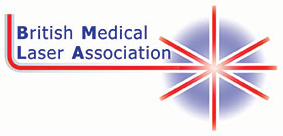 Download this information as a PDF
Download this information as a PDF
What is psoriasis?
Psoriasis is a common, chronic, scaly rash that affects people of all ages (about 2% of the population). There is a genetic predisposition to psoriasis i.e. it tends to run in families. Psoriasis is also influenced by many environmental factors. It is not contagious and is not due to an allergy. The most common ages for psoriasis to first appear are in the late teens and in the 50s. It affects men and women equally, although in children, girls are more commonly affected than boys. Psoriasis is often so mild it is barely noticed by the affected person, but it can occasionally so severe the patient must be admitted to hospital for treatment. It may or may not be itchy. About 5% of those with psoriasis will also develop joint pains (psoriatic arthritis), which may involve one or more joints. This can be very debilitating.
What does psoriasis look like?
Psoriasis is characterised by red, scaly patches of skin, which usually have very well defined edges. It is often symmetrical, affecting both sides of the body. The scale is typically silvery white. This typical scale may not be so obvious if the psoriasis affects a body fold such as the armpit or the patient is using emollients regularly. Then it is more likely to be smooth and shiny. Psoriasis is often very minor, causing a few dry patches on the backs of the elbows and knees, some irritation in the umbilicus (belly button) and natal cleft (between the buttocks) or scaling in the scalp. It can, however, affect any area of skin and it may be severe or atypical.
- Typical patterns of psoriasis include:
- Chronic plaque psoriasis: large flat patches (plaques) covered in scale, most often on elbows, knees and lower back
- Flexural psoriasis: smooth well-defined patches in body folds
- Scalp psoriasis: one or more scaly plaques in the scalp
- Acute guttate psoriasis: numerous and often widespread small patches
- Sebopsoriasis: overlap of seborrhoeic dermatitis and psoriasis, affecting scalp, face, ears and chest
- Palmoplantar psoriasis: several patterns of psoriasis on the palms and soles
- Nail psoriasis: pitting, onycholysis, yellowing and ridging
- Intraoral psoriasis: desquamation inside the mouth, most often associated with the more severe forms of cutaneous psoriasis
- Koebnerised psoriasis: psoriasis arising in healing wounds or scars
- Photosensitive psoriasis: psoriasis affecting sun-exposed skin
- Pustular psoriasis: generalised or localised to palms and soles
- Erythrodermic psoriasis: severe psoriasis affecting the entire skin surface
- Psoriatic arthritis: joint disease related to psoriasis
After the psoriasis has cleared up by itself or with treatment, it may leave dark or pale marks (post-inflammatory hyperpigmentation and hypopigmentation). It does not cause true scarring. The pigmentary changes gradually improve over several months.
What causes psoriasis?
Exactly what causes psoriasis is not fully understood but there is a lot of active research into this area. The immune system is involved and appears to be overactive in a way that causes inflammation. Specifically, there is exccessive production of TH1 cytokines, particularly TNFα. These have many effects, including growth of extra blood vessels within the skin (causing the red colour) and increased turnover of the skin cells (causing the scaling and thickening of the skin).
Genetic influences
Like most diseases, psoriasis is influenced by inherited characteristics. Up to 50% of people with psoriasis will know of another affected family member. Patients with a family history of psoriasis tend to develop psoriasis earlier in life than those without a family history.
Stress
Physical and emotional stress may precipitate psoriasis and are hard to avoid.
Infection
Infections may cause flares of psoriasis. Sometimes, treatment of the infection may result in clearing or improvement of the psoriasis.
- Sreptococcal throat infections (tonsillitis) may cause guttate psoriasis.
- Candida infections (thrush) may aggravate flexural psoriasis.
- Malassezia yeasts may have a role in sebopsoriasis.
Injury
Psoriasis localises around the site of physical, chemical, electrical, infective and inflammatory injury as it heals (the Koebner phenomenon). Less often, psoriasis may localise to old scars.
Hormones
The relationship of hormones to psoriasis is unclear. Post-puberty is a peak time for the onset of psoriasis. Pregnancy may also have an effect on the severity of the psoriasis; it usually improves with the potential for worsening after the birth of the baby, but the reverse can occur. Psoriasis does not affect the unborn baby.
Medications
Several medications can precipitate or aggravate psoriasis:
- Lithium,an antidepressant (supplements of inositol 6g daily may reduce this tendency)
- Beta blockers (used to treat high blood pressure)
- Anti-malarials e.g. hydroxychloroquine
- Stopping oral corticosteroids
- Stopping strong topical corticosteroids.
Ultraviolet light
Sunlight is usually beneficial for psoriasis (except in sun sensitive / photosensitive psoriasis).
Obesity
Many psoriasis studies have noted many affected patients to be overweight or obese. Recently, it has become clear that the severity of psoriasis is correllated with insulin resistance, a feature of metabolic syndrome.
Alcohol and smoking
There is an association between increased alcohol intake and smoking and the development of severe psoriasis. However, whether a cause or effect is not known.
Is there a cure?
There is to date no cure for psoriasis but satisfactory control of the disease is possible for most patients. Some people have a single episode of psoriasis that clears after a few months and never recurs, quite likely after acute guttate psoriasis. Most other forms of psoriasis run a fluctuating course with periods of marked improvement and even complete clearance, only to relapse at a later time. There may be several years between relapses. A small group of patients have severe, persistent psoriasis that is very difficult to treat and can be very disabling.














